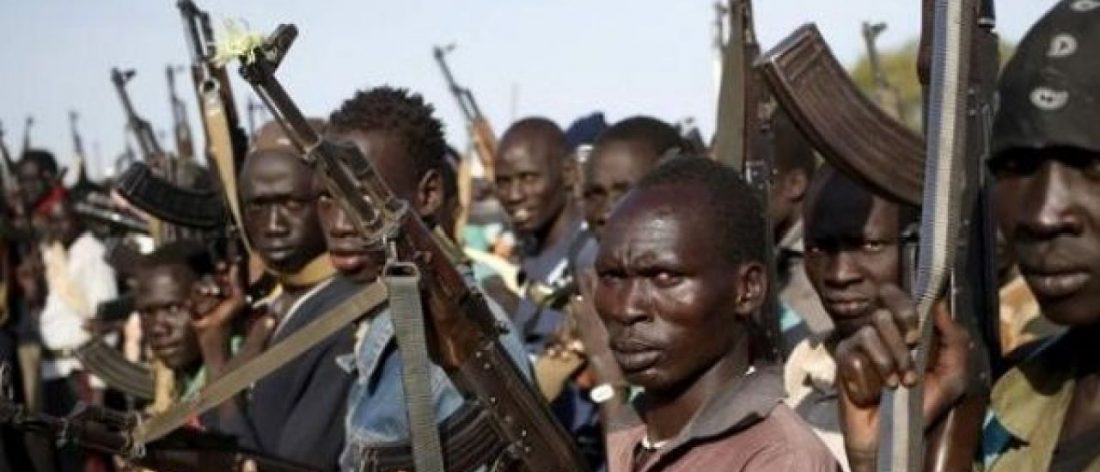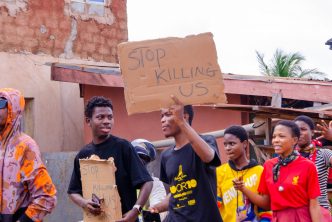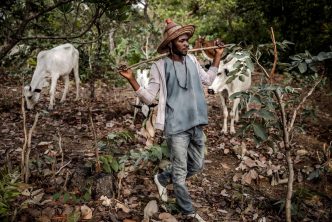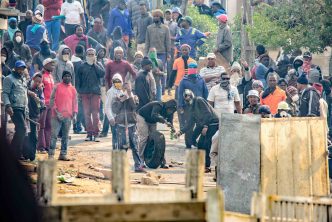Gun Violence in Nigeria
Background
The incidence of gun violence has soared across Nigeria in recent years. A day hardly passes without media reportage of gun-related injuries and killings by violent criminals. The significant perpetrators of gun violence include terrorists, insurgents, bandits, kidnappers and cultists. The state security agencies have not only been unable to address the rising wave of gun violence, but they have also been a significant contributor to extra-judicial murders. The steady diminution of public safety has led to the formation of vigilante groups and ethnic militias in different areas of the country such as the Amotekun in the South-West and Civilian Joint Task Force in the North-East (Saheed and Onuoha, 2019).
However, the protection of lives and property has remained under terrible security threat despite the proliferation of local vigilante groups and other pro-government security actors. This wave of violence has prompted vigorous debate on whether responsible Nigerian citizens should be licensed to bear firearms for self-defence. Though most Nigerians want a safer society, they differ on how to ensure public safety and on whether the proposed changes to guns regulations can be useful. This essay examines this debate and makes recommendations on measures to secure public peace in Nigeria.
Discontents over Firearms
Governments around the world regulate the production, distribution and use of firearms in a bid to maintain law and order as well as ensure the protection of lives and property. Efforts by the Nigerian government to regulate the production and circulation of firearms have only yielded marginal results. The United Nations estimated that Nigeria accounts for over 70{1c02100822988c48c7b0a484ab61ac3d7f398d67c2f66594d88b2db33072d9d9} (that is, about 350 million) of the 500 million illicit Small Arms and Light Weapons (SALWs) in the West African sub-region. Most of the illegal SALWs are in the hands of criminals who keep the nation under the siege of violence. However, the country criminalises gun abuse, prescribing a maximum of five years imprisonment for unauthorised possession of firearms (Nigeria,1990).
Sadly, neither the state security agents nor the anti-gun legislation has been able to ensure the protection of lives and investments. Jihadist insurgents have unleashed deadly violence on state and society in the North-East in the last decade. Bandits have maimed, abducted and killed several hundreds of defenceless people in the North-West in a previous couple of years. Southern Kaduna has been a killing field in recent years before the very eyes of both state and federal governments. Like in the North, the criminal economy of ransom kidnap continues to witness a vast boom across Southern Nigeria (Oluyemi. 2020). These awkward security situations are fuelling calls for responsible citizens to bear arms to defend themselves and their communities.
Tackling Insecurity, Arming Citizens
Those advocating for civilians to bear firearms argue that the possession of such weapons can be the great equaliser during an attack by violent criminals. Indeed, according to Trotter (2013 cited in Wood, 2018), “guns reverse the balance of power in a violent confrontation” because they can cause the intruder or violent criminal to flee, saving the prospective victims from danger. This situation has been one of the rationales for the liberalisation of gun permits in the United States.
However, some context-specific factors make American-style arming of citizens impracticable in Nigeria at the moment. First, it is tough to determine those who are “responsible” enough to bear arms because of the low availability of quality data in the country. Second, Nigeria does not have a significant security architecture to monitor who buys what guns, when, and for what purpose. Third, the rate of abysmal poverty in Nigeria is too high. As a result, there might be a terrible abuse of firearms by hungry and angry persons. Besides, politicians might take undue advantage of such excessive availability of armed persons to unleash mayhem on one another in their unbridled quest for political power.
Arresting the Wave of violent Insecurity
Following from the above, arming Nigerian citizens is impracticable for now in tackling violent insecurity. The following measures are to be considered in mitigating the current wave of violence in the country.
- Rather than arming citizens, the police are to be revamped: The operations of the Nigeria Police Force (NPF) need to be decentralised so that the NPF will have footprints across the country, including the grassroots. The recent approval of N13 billion by the federal government for the takeoff of community policing is a step in the right direction. However, the money must be used judiciously in training, equipping and arming the police. State of the art technological gadgets should be provided for them as done in the United States where the use of facial recognition software, biometrics, shot spotter, thermal imaging, enhanced body-worn cameras, and other innovative technologies have revolutionised policing. Vehicles should be provided and maintained for the police to insulate them from corruption, human rights violations, and other unprofessional practices.
- The proliferation of illegal firearms should be addressed: The cheap and easy availability of SALWs in Nigeria needs to be urgently addressed by the government and its allies as well as Nigerian citizens. The production, distribution and use of firearms need to be effectively regulated through stricter sanctions on those who breach the laws. The Nigeria Customs Service (NCS) has done well in intercepting and confiscating illegally imported firearms in recent times. However, apart from arresting the importers, the source companies and countries should also be reported to the appropriate regulatory international organisations for sanctions. Other security and para-military agencies should complement the NCS in arresting the proliferation of illicit arms. For example, the land borders need to be better policed to stop the inflow of illegal firearms in the country as often done by the Boko Haram insurgent group.
- Civil society organisations should be empowered: Civil society organisations play critical oversight functions as watchdogs. These groups which straddle the state and society need to be strengthened to enable them to discharge their responsibilities more effectively. In particular, they should be adequately funded and sensitised to hold public institutions and security forces accountable as has been done in the United Kingdom for several years.
- The root causes of violent insecurity should be tackled: Importantly, the root causes of the insurgency, terrorism, ethnic conflicts, kidnapping, cultism and other criminal violence which make people resort to firearms need to be addressed. The enabling environment for small and medium enterprises to thrive should be provided. Critical to this is the provision of steady electricity to keep people, especially the youth, gainfully engaged. An idle mind, they say, is the Devil’s workshop.
Finally, allowing most Nigerians to bear arms may escalate rather than mitigate the security situation in the country for now. Rather than arming the citizens, the security forces, especially the police, should be revamped and reoriented to serve the people better. Civil society organisations should be strengthened to enable them to play their watchdog roles on the government institutions, including the police. Also, local and foreign people and organisations involved in the illegal importation of firearms into the country should be sanctioned to serve as a deterrent to others. More importantly, the root causes of grievances which make people resort to illegal arms should be addressed for peace to reign.







